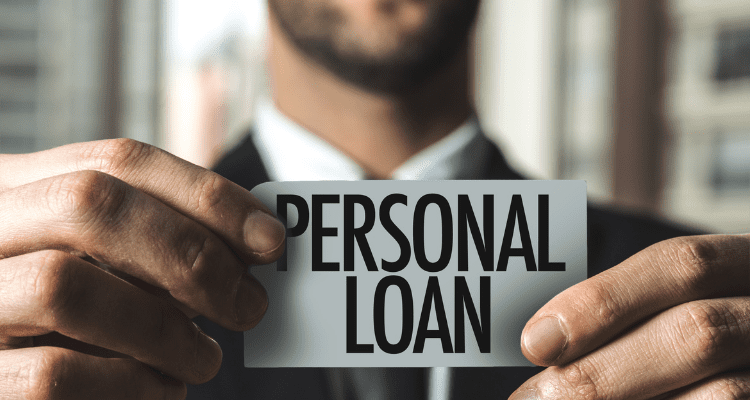Personal loans, in recent years have gained a lot of negative press, but if you fully understand how they work, and use them sensibly, they can be very useful.
We’ve put together a guide to help you better understand and utilise personal loans.
What Are Personal Loans?
A personal loan is money that you, as an individual, can borrow from a lender. These loans can be small amounts of money or larger sums, depending on approval and borrower requirements.
A lender is the individual, financial institution, or organisation that provides funds to borrowers. For personal loans, the expectation is that the borrowed amount will be repaid, typically with interest, over an agreed period.
What Can Personal Loans Be Used For?
Personal loans can be used for a number of things, including consolidating existing debts and paying for more time-sensitive things like home repairs or life events like weddings and funerals.
The type of loan you’re looking for may vary depending on the amount you need to borrow and how quickly you need to repay it.
In some cases emergency loans or payday loans may be more suitable. When you take out a loan you should be sure that you fully understand the repayment terms and what they mean.
Personal Loans for Home Renovations
Home renovations or household emergencies can require a cash injection. Personal loans make it simple to access the funding for home improvements and structural changes.
Personal Loans for Weddings
Weddings can be very expensive, and are a common reason that people explore personal loans. There are personal loans that are suitable for weddings and other life events if the borrower (or borrowers) fit the necessary criteria.
Understanding Unsecured Loans
Unsecured loans include personal loans, student loans, and most credit cards. Unlike secured loans, they don’t need collateral; instead, approval is based on the borrower’s creditworthiness.
Personal Loans
- Personal loans are versatile loans that individuals can use for various purposes, such as debt consolidation, home improvements, or unexpected expenses.
- These loans are not backed by collateral and are typically repaid in fixed monthly instalments.
Student Loans
- Specifically designed to finance education-related expenses, including tuition, textbooks, and living costs.
- Generally, repayment begins after the borrower completes their education, with options for income-driven plans.
Credit Cards
- Credit cards represent a form of revolving unsecured loans. Borrowers are assigned a credit limit that can be spent, repaid, and spent again.
- Credit cardholders have the flexibility to manage their spending within the approved credit limit.
Learn what you’ll need when applying for an unsecured personal loan.
Does A Personal Loan Impact Your Credit Score?
Your credit score is mostly impacted by how you manage and repay your existing debt and how regularly you are accepted or declined for new credit channels.
A personal loan can impact your credit score both positively and negatively. It’s important to weigh up the benefits and drawbacks when you apply for a personal loan if you are concerned about your credit score.
How A Personal Loan Can Positively Affect Your Credit Score
Diversifies Credit Mix
Taking out a personal loan adds diversity to your credit mix, which can have a positive effect on your credit score. Lenders often look favourably upon those with a mix of credit types, such as instalment loans (like personal loans) and revolving credit (like credit cards).
Responsible Repayment History
Making payments on time for your personal loan demonstrates responsible financial behaviour. Each on-time payment contributes positively to your payment history, a crucial factor in determining your credit score.
How A Personal Loan Can Negatively Affect Your Credit Score
Hard Inquiry on Your Credit Report
When you apply for a personal loan, the lender typically performs a “hard search” on your credit report. While a single inquiry may have a minimal impact, multiple inquiries within a short time frame can slightly lower your credit score.
Impact on Credit Utilisation
If you use a personal loan to consolidate credit card debt and subsequently close those credit card accounts, it can impact your credit utilisation ratio. A higher credit utilisation ratio may have a negative impact on your credit score.
What Factors Affect Loan Approval?
- Credit Score – A higher credit score increases your chances of loan approval, reflecting your creditworthiness.
- Income and Employment History – Lenders assess your income and stable employment history to ensure your ability to repay the loan.
- Debt-to-Income Ratio – A lower debt-to-income ratio, comparing your monthly debt to income, enhances your loan approval prospects.
- Loan Amount and Purpose – The requested loan amount and its intended purpose impact approval criteria for lenders.
- Credit History – A positive credit history, showcasing responsible financial behaviour, strengthens your creditworthiness.
- Collateral (for Secured Loans) – The type and value of collateral can influence approval for secured loans (like mortgage or vehicle loans), providing security for the lender.
- Loan Term – Lenders may have specific criteria that is based upon the duration of the loan term.
- Down Payment (for Certain Loans) – A larger down payment can enhance approval chances for loans like mortgages or auto loans.
- Co-Signer or Guarantor – Having a co-signer or guarantor with a strong credit history can improve your approval prospects.
- Loan-to-Value Ratio (for Secured Loans) – A lower loan-to-value ratio, comparing the loan amount to the asset’s value, positively influences approval for secured loans.
Can Someone With Bad Credit Get A Personal Loan?
Someone with bad credit can access personal loans, although the options might be more limited. For those with CCJs, missed payments, or similar marks on their credit history that can be a stumbling block, there are specialist lenders out there.
In these cases, going through a broker can have a number of benefits. Not only will you be able to avoid many marks on your credit report from rejections, but brokers are also aware of which lenders are most suitable for your borrowing profile.
Is it Hard to Get a Personal Loan?
Obtaining a personal loan can be very simple or extremely difficult depending on individual circumstances and the amount that you are looking to borrow.
Credit score is usually one of the most influential factors because it takes into account your payment history and existing debts. It’s not, however, impossible to secure a personal loan with an average or below average credit score.
If you know you will be exploring personal loans in the future, it can be a good idea to prepare by paying off existing debts or credit lines or ensuring that the debt-to-income ratio will be seen as manageable by potential lenders.
How To Get A Personal Loan With Badger Loans
Badger Loans is not a lender, we are fee-free brokers. What this means is that we match you with a suitable lender from our panel to help you access personal loan options and our “matching” comes at no cost to you.
We will not personally run a credit check on you, but we will match you with a suitable lender who may do so.
The agreement made is between the lender (ie. the bank or business who provides the funds) and you as the borrower.
If at any point you have questions about your personal loan, you should contact the lender directly.


